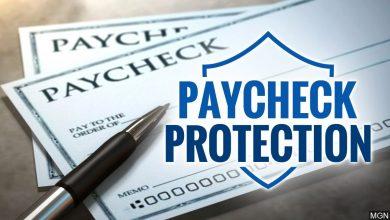Stop Waiting for a Second Round of Economic Stimulus Checks
Prepare a Plan to Improve Your Finances and Begin Saving Money Today

Millions of Americans continue to receive the unemployment benefit and financial aid check as the United States economy continues to recession and some states are halting the reopening due to the outbreak of new coronavirus cases. Some lawmakers are requesting a second round of stimulus checks. Democrats are pushing the so-called HEROES Act that could deliver a maximum of $ 6,000 per household. In the midst of the discussion, President Donald Trump expressed his support for carrying out a second round of financing, stating that “we will make another stimulus package. It will be very good, it will be very generous, ”said the president during an interview last week. Nothing is certain and if a new round of financial support is approved, it would be approved until the end of July. Despite current federal funding, a large number of people will not be able to cover all of their expenses if they continue without employment.
As the discussion on the second round of stimulus continues, we provide you with some alternatives that you can start doing now to protect your assets and pay outstanding bills:
Step 1. Limit your expenses: At a time when money is tight, it’s time to find out what expenses you can cut temporarily. During the past few weeks, many people have spent less money by not going out to dinner or shopping as they did on a regular basis, so it is important to differentiate essential from non-essential expenses. Check the purchases you made in the month of March and April since during those months you spent your money on purchases that are basic.
From there it breaks down the purchases that were decisive. Another way will be to create a “noodle budget”, that is, prepare a list of expenses with the lowest possible amount in which you can spend to live each month and where you only need to pay for basic services such as rent, public services, the phone or the internet bill or food. You can also cut costs for food, entertainment, gym or streaming services. When you have a good estimate of your expenses, decide between the essentials and what can wait until you achieve your financial recovery.
Step 2. Optimize your way of spending money: It is time to review your bills and find out if you are spending too much on something. Most people do not review cable and internet services and years go by without analyzing the companies that offer them for less money. Try to cut bills for your cell phone, cable, credit card, student loan, and home services. Ramit Sethi, a financial expert, mentions that some of the companies may offer financial assistance programs that are available during the crisis and even if they don’t have them, it will be necessary to negotiate the current payment or delay payments until a later date. It is important that you review your payment history and mention to the companies that you have made your commitments in a timely manner to try to negotiate an agreement with the companies. Some phone companies are offering plans that could save you up to half of what you are paying for your current service.
Step 3. Prioritize the payment of your bills: Once you’ve cut your expenses and bills as much as you can, prioritize where the money you have goes to find out which of those expenses you should pay first and which you can delay. Check out the deferred payment programs that utility companies, cell phone companies, and homeowners may be offering. You can review the plans and programs that the federal government and states have that can help you during the economic crisis.
Step 4. Find an extra income: Try to start an online business or perhaps take a job in an industry that has not been impacted by coronavirus closings. A large number of supermarkets are hiring staff for their different departments. Part-time work could help you bridge the gap until you find a new job in the field you master. You can also review work you can do from home. Different customer service companies and computer support specialists are offering job opportunities during the pandemic.
Los Angeles County Small Business Aid Fund Created
Los Angeles County introduced a new regional fund that will provide financial aid to entrepreneurs, small entrepreneurs, and non-profit organizations beginning July 6. The fund named after the LA Regional Covid Fund will provide $ 5,000 in financial aid to entrepreneurs and up to $ 15,000 for small businesses and for-profit organizations. The @CountyofLA is launching the LA Regional COVID Fund to provide grants to small businesses, non-profits, and gig workers struggling to make ends meet due to this pandemic.
Applications open on July 6th. Visit https://t.co/YQT4if1ZHO or call 833-238-4450 for more information. pic.twitter.com/lKo2LWORTJ
– Janice Hahn (@SupJaniceHahn) June 30, 2020
Eligibility Requirements
To get the county financial aid, all applicants, entrepreneurs, small entrepreneurs, and NGOs must have been in operation before September 2019. Entrepreneurs can get help of up to $ 5,000. This groups people who are business owners but have no employees, who work as an independent contractor or are sole representatives of a company as long as they have had less than $ 100,000 in earnings in the last year.
- Small businesses may elect up to $ 15,000 in aid if they made less than $ 1 million in profits in the last fiscal year.
- Nonprofits could also earn up to $ 15,000 if they meet certain requirements similar to those of small entrepreneurs.
Initially, the fund has $ 3 million available to grant aid and will accept applications from July 6, 2020 to September 9, 2020.





